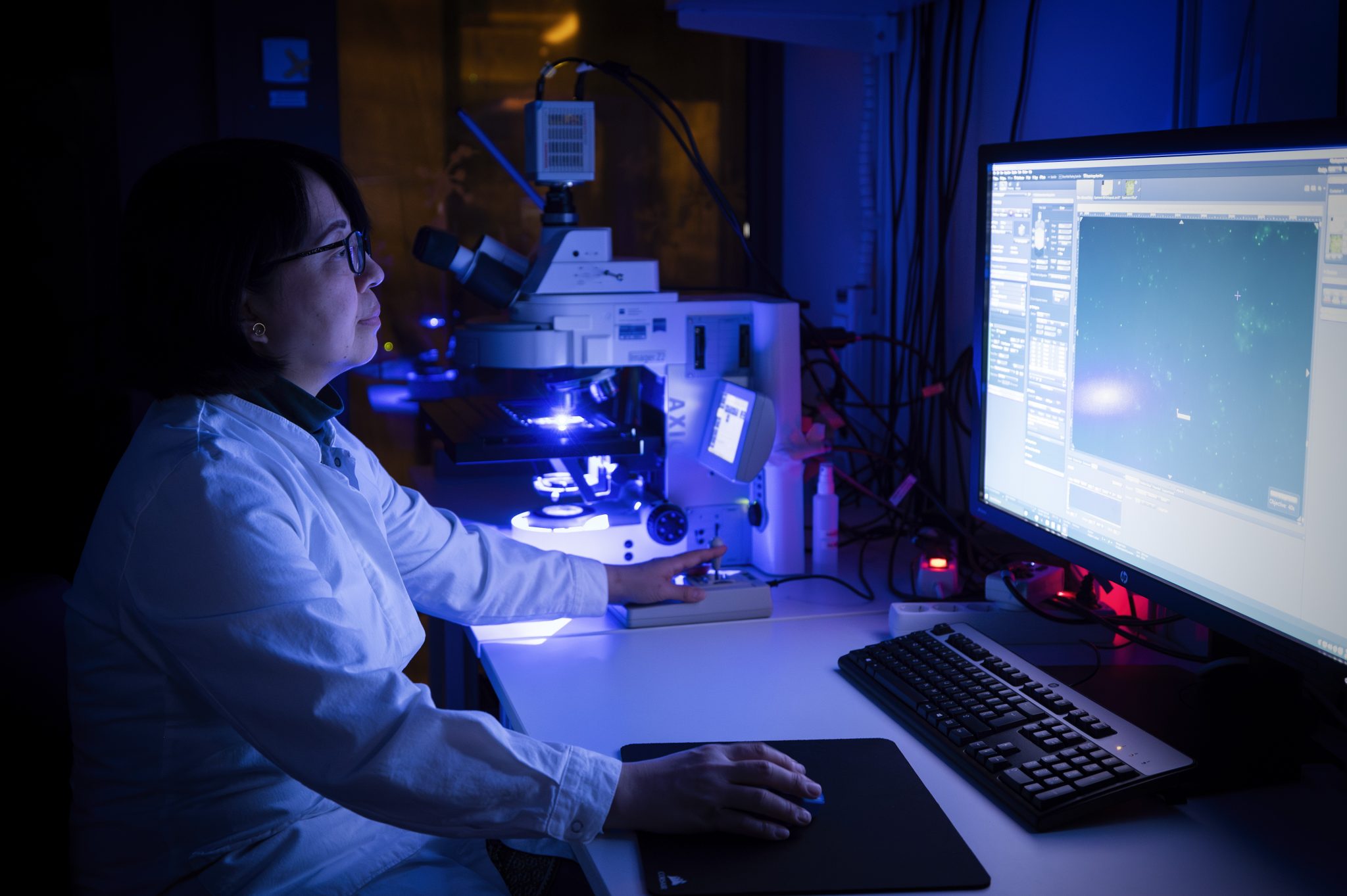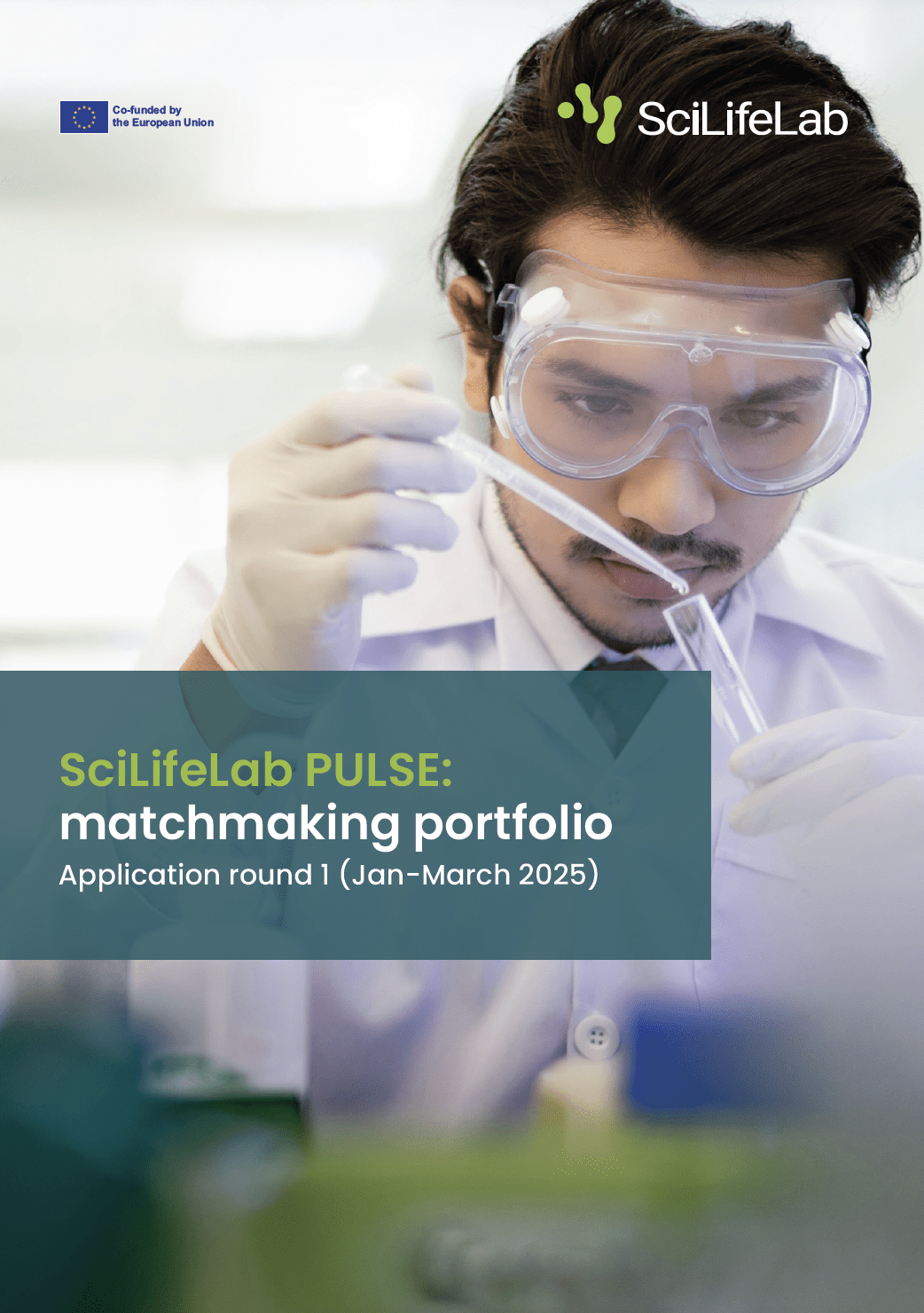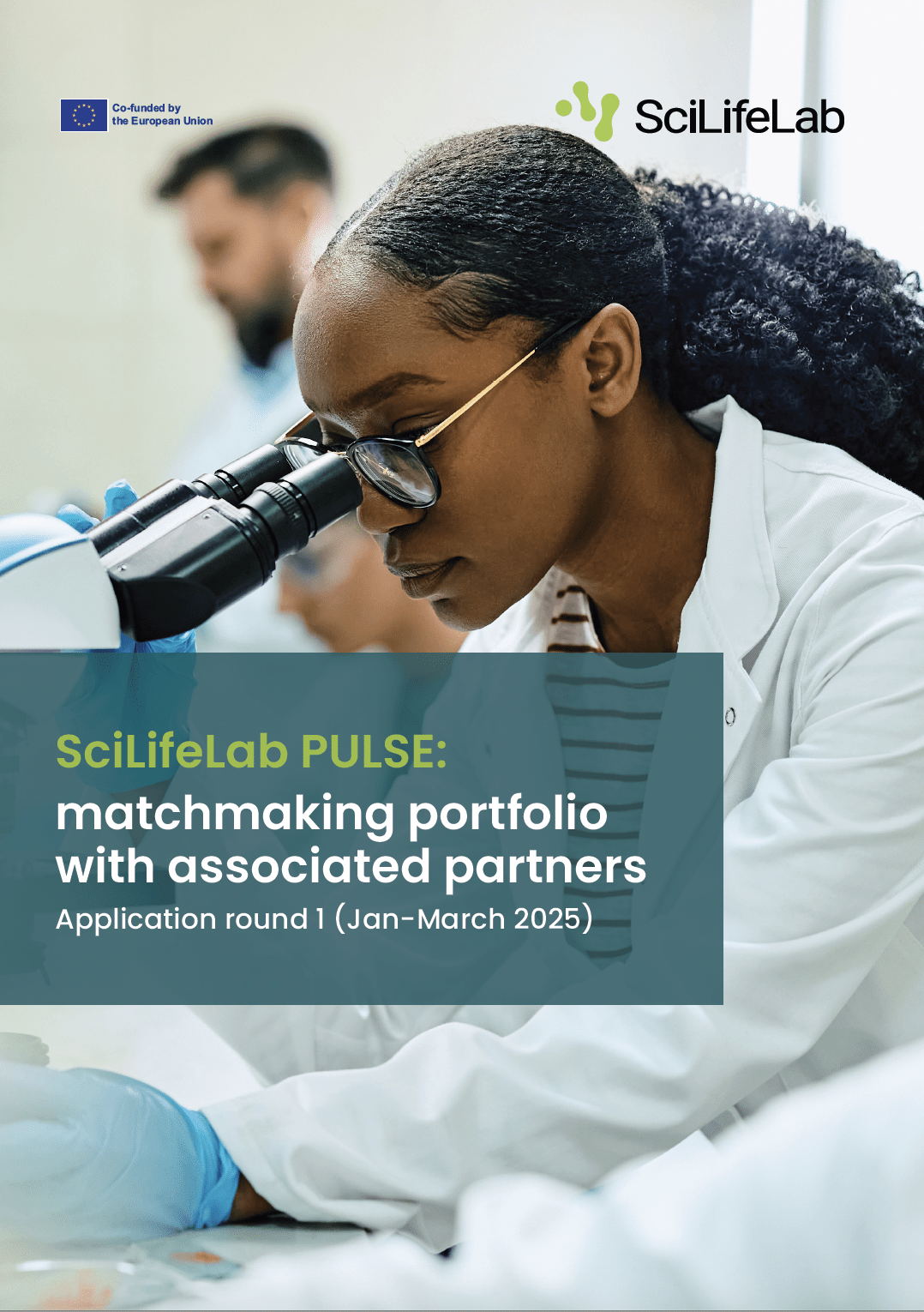Application
(The first call is closed. The second call opens in January 2026)
PULSE postdoc applicants have the opportunity to choose between an academic or an entrepreneurial track. Both fellowship tracks will include advanced training in research and transferable skills, integrating international, interdisciplinary and intersectoral elements to foster collaborations and career development towards future leadership in molecular life sciences.
48 postdocs will be recruited in total, of which 24 in the first call, 16 for the academic track and 8 for the entrepreneurial track. In the second call, opening in January 2026, another 24 postdocs will be recruited, 16 for the academic track and 8 for the entrepreneurial track.
Skip to
Important dates ahead
Eligibility
Proposal
Matchmaking portfolios
Additional information

Important dates ahead
- March 31, 2025, at 16:00 pm, UTC+1: 1st Call closed
- April – May, 2025: Evaluation and selection phase
- June, 2025: Decision on the first 24 SciLifeLab PULSE postdocs
- June – September, 2025: Appointment and contractual phase
- October 1, 2025: Start of postdoc fellowship employment
Eligibility
Applicants must comply with the MSCA mobility rule. This means that the candidate can come from any country in the world, but may not apply if resided or carried out their main activity (work, studies, etc.) in Sweden for more than 12 months during the 3 years preceding the call deadline, unless as part of a procedure for obtaining refugee status under the Geneva Convention (Researchers at risk). Applicants can use the Eligibility time calculator to determine their eligibility.
The applicant cannot be a permanent employee in the lab of the main PULSE supervisor PI during the application- or evaluation process.
Furthermore:
Applicants must be in possession of a doctoral degree, awarded no more than 3 years before the application deadline (with accepted exemptions for deducible time, e.g. compulsory national service, medical and parental leaves of absences, time expended obtaining refugee status under the Geneva Convention). Applicants who have successfully defended their doctoral thesis but who have not yet formally been awarded the doctoral degree will also be considered eligible to apply.
Postdoc should be available for employment, ready to start at or near the announced start date, which is October 1, 2025.

Proposal
Guide
Looking to get started with your application for 2026? Check out the Guide for Applicants below, and also a recording from the Information Webinar on January 23, 2025
Matchmaking (Portfolios will be updated for the call in 2026)
Applicants are obliged to have a suitable SciLifeLab Group Leader (Principal Investigator, PI) as main host for their fellowship project. Applicants need to contact the PI they wish to collaborate with and get their approval of partnership for the project proposal.
Please use the matchmaking portfolios below to find a suitable PI, as well as suggestions for secondments, for your project.
Project
Postdoc candidates apply with an individually-designed project within any topic, for either the academic track or the entrepreneurial track.
Application content
See complete list of required elements in the drop-down below.
- Cover letter with motivation for application and expected benefit from PULSE and the chosen track, and also describing why the proposed hosting institution/s (main and secondment) represent a good fit
- Research proposal, directed for either the academic or the entrepreneurial track
- Ethics self-assessment in digital form (if ethical approval needed, this should be stated in application)
- Description of how the project aligns with the MSCA Green charter
- Abstract
- 2 reference letters
- Curriculum vitae in the Europass format, including list of publications
- Name of PULSE PI who has approved to act as main host including Letter of Commitment (signed by PULSE PI and Head of Department)
- Suggestions for secondments and research visits at one or several of the PULSE Partners
Matchmaking portfolios
(Portfolios will be updated for the call in 2026)
Group Leader (host) portfolio
Looking to apply for a postdoc position within the program? Use the matchmaking portfolio to find a suitable SciLifeLab Group Leader for your project!
The PIs featured in this portfolio have submitted keywords summarizing their research areas. These keywords have been consolidated at the beginning of the portfolio to help candidates identify PIs in their field of interest. Candidates can easily locate relevant PIs by using the keywords and document’s search function.
Applicants can also contact other SciLifeLab Group Leaders about the possibility to be hosted by them (i.e. they do not need to be presented in this portfolio).
If you are a SciLifeLab Group Leader, you can Register your interest to host postdocs in the PULSE program.
Associated partners (secondments) portfolio
Applicants should in their application include suggestions for mandatory secondments (3-6 months) and optional research visits (up to 4 weeks) that would be of value for their project. Applicants are encouraged to contact secondment hosts they find interesting for their project proposal (i.e. they do not need to be presented in this portfolio).
Please note that secondment hosts can also be added later on in the program.
Additional information
Diversity, Equity, and Inclusion
To reach its full potential and in line with Swedish law, PULSE will take the gender dimension, diversity aspects and unconscious bias into account throughout all parts of the project, including call dissemination, evaluation and selection.
The PULSE partners are committed to welcoming exceptional postdocs regardless of age, ethnicity, gender, disability, origin (social or national), religion, sexual orientation, language, political opinion or economic condition, and to follow the European Charter for Researchers and Code of Conduct for the Recruitment of Researchers. In addition, SciLifeLab hosts a community-driven and highly active Diversity, Equity and Inclusion committee (SciLifeLab DEI), and has also established a Code of Conduct to emphasize the importance of a healthy and safe work environment for productivity and success.
Applicants with special needs
If you have special needs and want to know more about what kind of support is offered during the application process, then you can send questions to pulse@scilifelab.se. The MSCA special needs allowance will be applied for if required by the postdoc in case of recruitment.
Researchers at risk
Researchers at risk include researchers, scholars and scientists at all stages of their careers who are experiencing threats to their life, liberty or research career, and those who are forced to flee or have been displaced because of such threats. To widen access for researchers at risk, PULSE will consider the MSCA guidelines for the Inclusion of Researchers at Risk on a best-effort basis.


N.B. Funded by the European Union. Views and opinions expressed are however those of the author(s) only and do not necessarily reflect those of the European Union or the European Research Executive Agency. Neither the European Union nor the granting authority can be held responsible for them.

